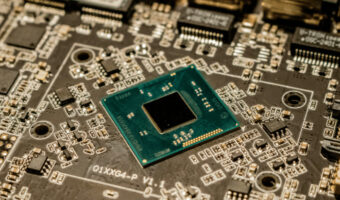Electronics and Circuit Design: Fundamentals and Applications
About This Course
The course on Electronics and Circuit Design: Fundamentals and Applications provides participants with a comprehensive understanding of the principles, concepts, and techniques involved in electronic circuit design. This course is designed to equip participants with the knowledge and skills necessary to design and analyze electronic circuits for a wide range of applications in various industries.
The course begins by introducing the fundamental concepts of electronics, including voltage, current, resistance, and basic circuit elements such as resistors, capacitors, and inductors. Participants will learn about Ohm’s law, Kirchhoff’s laws, and how to apply these principles to analyze and solve simple electronic circuits.
Participants will delve into the fundamentals of semiconductor devices, including diodes, transistors, and operational amplifiers (op-amps). They will gain insights into the characteristics and applications of these devices, as well as how to model and analyze circuits containing them.
The course covers various electronic circuit design techniques, such as voltage dividers, amplifiers, filters, and oscillators. Participants will learn about different amplifier configurations, including common-emitter, common-collector, and common-base configurations. They will explore the design and analysis of active filters for signal processing and the principles behind the generation of sinusoidal and non-sinusoidal waveforms.
Furthermore, the course addresses digital electronics and logic gate design. Participants will gain an understanding of binary number systems, Boolean algebra, and the design and analysis of combinational and sequential logic circuits. They will explore the principles of logic gates, flip-flops, counters, and registers, and learn how to design and implement digital circuits.
The course also covers analog-to-digital and digital-to-analog conversion techniques. Participants will learn about sampling, quantization, and the principles behind analog-to-digital converters (ADCs) and digital-to-analog converters (DACs). They will explore the design considerations and applications of these conversion techniques.
Moreover, participants will gain insights into printed circuit board (PCB) design and layout considerations. They will learn about the various components of a PCB, design rules, and best practices for designing reliable and efficient electronic circuits.
Throughout the course, participants will engage in practical applications and projects, designing and simulating electronic circuits using computer-aided design (CAD) tools. They will have the opportunity to work with simulation software and gain hands-on experience in circuit prototyping and testing.
By the end of the course, participants will have developed a strong foundation in electronics and circuit design. They will be equipped with the knowledge and skills to design and analyze electronic circuits for various applications, such as amplification, signal processing, and digital logic. This course prepares professionals to contribute to the advancement of electronics and circuit design in industries such as telecommunications, consumer electronics, automation, and more.
Learning Objectives
Material Includes
- E-Books
- Guide Papers
- 1&1 Consultation
- Certificate of Completion
This course is best for:
- Electrical Engineers: This course is ideal for electrical engineers seeking to enhance their knowledge and skills in electronics and circuit design. It provides them with the necessary foundation to design and analyze electronic circuits for various applications, enabling them to contribute to the development of innovative electrical systems.
- Electronics Engineers: Professionals working in the field of electronics engineering, particularly those involved in the design and development of electronic devices, will find this course valuable. It equips them with the knowledge and skills specific to circuit design, enabling them to design efficient and reliable electronic circuits.
- Design Engineers: Individuals responsible for designing electronic systems or components can take this course to enhance their understanding of circuit design principles. It provides them with insights into design techniques, analysis methods, and practical considerations for creating functional and optimized electronic circuits.
- Graduate Students and Researchers: Graduate students pursuing degrees or involved in research in the field of electrical engineering, electronics, or related disciplines can take this course to supplement their academic studies. It provides them with a strong foundation in electronics and circuit design, preparing them for research work and professional careers in the electronics industry.
- Hobbyists and Enthusiasts: Individuals with a keen interest in electronics and circuit design can also benefit from this course. Whether you are an electronics hobbyist or an enthusiast looking to expand your knowledge and skills, this course provides you with the fundamental concepts and practical insights to design and build electronic circuits.
- Participants are expected to have a basic understanding of electrical circuits, including knowledge of Ohm's law, voltage, current, and basic circuit components. Familiarity with circuit analysis techniques and basic electronic devices is beneficial but not mandatory, as the course covers both fundamental principles and advanced topics. This course serves as a comprehensive resource for professionals and individuals seeking to deepen their knowledge of electronics and circuit design, supporting their contributions to various industries, such as telecommunications, consumer electronics, automation, and more.






